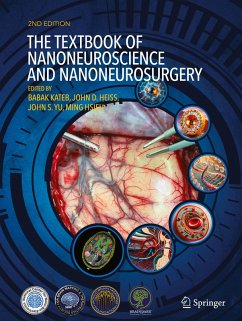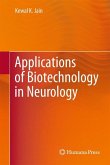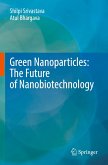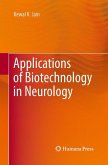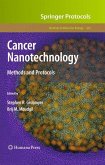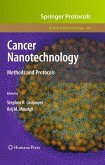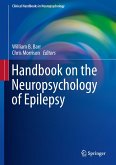This textbook highlights the exciting field of nanoneuroscience and its potential to transform how we diagnose and treat neurological disorders. "The Textbook of Nanoneuroscience and Nanoneurosurgery," dives deep into this emerging field, exploring the latest tools and techniques currently being developed at the nanoscale level. Key areas of focus include:
Nanoplatforms: The book explores how scientists utilize materials on a near-microscopic scale for neurosurgery, neurology, and brain imaging applications.
Bridging the Gap: Regulatory hurdles for translating research from the lab to real-world use are addressed, paving the way for future advancements.
The Future is Now: The book showcases recent breakthroughs already impacting patient care alongside promising areas with significant potential.
Collaboration is Key: Insights from over 220 researchers and 5000+ references, along with illustrative figures in B/W and color, provide a comprehensive overview of this dynamic field.
With its focus on minimally invasive procedures and the latest regulatory considerations
"The Textbook of Nanoneuroscience and Nanoneurosurgery" equips researchers and medical professionals with the knowledge to develop groundbreaking treatments for neurological conditions.
The text also reviews the latest regulatory guidelines that influence the translation of nanotechnological research from the laboratory to the clinic and the most recent information on biodevices and pharmaceutical spinoffs. It highlights presidential and congressional initiatives and programs that may impact the field soon.
Some reviews of the First edition of the textbook.
"...a significant contribution to the field of nanoneuroscience and nanoneurosurgery ... the reader will come away with a deeper understanding of the history of nanotechnology and medicine."
-Neuroscience
"This is a monumental first textbook on nanoneurosurgery. ... recommended reading for neurosurgeons, neurologists, neuroradiologists, and neuroscientists involved in research on new techniques for application in neurosurgery. Biomedical engineers and various companies developing instruments and devices would benefit from the wealth of information about trends for the development of new technologies for neurosurgery."
K. K. Jain, MD, Basel, Switzerland
"Phenomenal body of knowledge in this book that would take eons to collate by myself. Every answer to every one of my questions plus heaps more. Essential reading for everyone interested in the field. A must-have!"
Albert Deme
"This is an amazing foray into the future of a largely unexplored, but increasingly critical medical domain.....I have learned much from every page of this captivating text, and I highly recommend it to any medical student, researcher, medical professional in the neurosciences, or anyone who has an interest in the human brain and the future of medicine, to gather a glimpse of the incredible and beneficial paradigm shifts that will soon impact the field of neuroscience."
Frank Boehm, British Columbia, Canada
Nanoplatforms: The book explores how scientists utilize materials on a near-microscopic scale for neurosurgery, neurology, and brain imaging applications.
Bridging the Gap: Regulatory hurdles for translating research from the lab to real-world use are addressed, paving the way for future advancements.
The Future is Now: The book showcases recent breakthroughs already impacting patient care alongside promising areas with significant potential.
Collaboration is Key: Insights from over 220 researchers and 5000+ references, along with illustrative figures in B/W and color, provide a comprehensive overview of this dynamic field.
With its focus on minimally invasive procedures and the latest regulatory considerations
"The Textbook of Nanoneuroscience and Nanoneurosurgery" equips researchers and medical professionals with the knowledge to develop groundbreaking treatments for neurological conditions.
The text also reviews the latest regulatory guidelines that influence the translation of nanotechnological research from the laboratory to the clinic and the most recent information on biodevices and pharmaceutical spinoffs. It highlights presidential and congressional initiatives and programs that may impact the field soon.
Some reviews of the First edition of the textbook.
"...a significant contribution to the field of nanoneuroscience and nanoneurosurgery ... the reader will come away with a deeper understanding of the history of nanotechnology and medicine."
-Neuroscience
"This is a monumental first textbook on nanoneurosurgery. ... recommended reading for neurosurgeons, neurologists, neuroradiologists, and neuroscientists involved in research on new techniques for application in neurosurgery. Biomedical engineers and various companies developing instruments and devices would benefit from the wealth of information about trends for the development of new technologies for neurosurgery."
K. K. Jain, MD, Basel, Switzerland
"Phenomenal body of knowledge in this book that would take eons to collate by myself. Every answer to every one of my questions plus heaps more. Essential reading for everyone interested in the field. A must-have!"
Albert Deme
"This is an amazing foray into the future of a largely unexplored, but increasingly critical medical domain.....I have learned much from every page of this captivating text, and I highly recommend it to any medical student, researcher, medical professional in the neurosciences, or anyone who has an interest in the human brain and the future of medicine, to gather a glimpse of the incredible and beneficial paradigm shifts that will soon impact the field of neuroscience."
Frank Boehm, British Columbia, Canada

